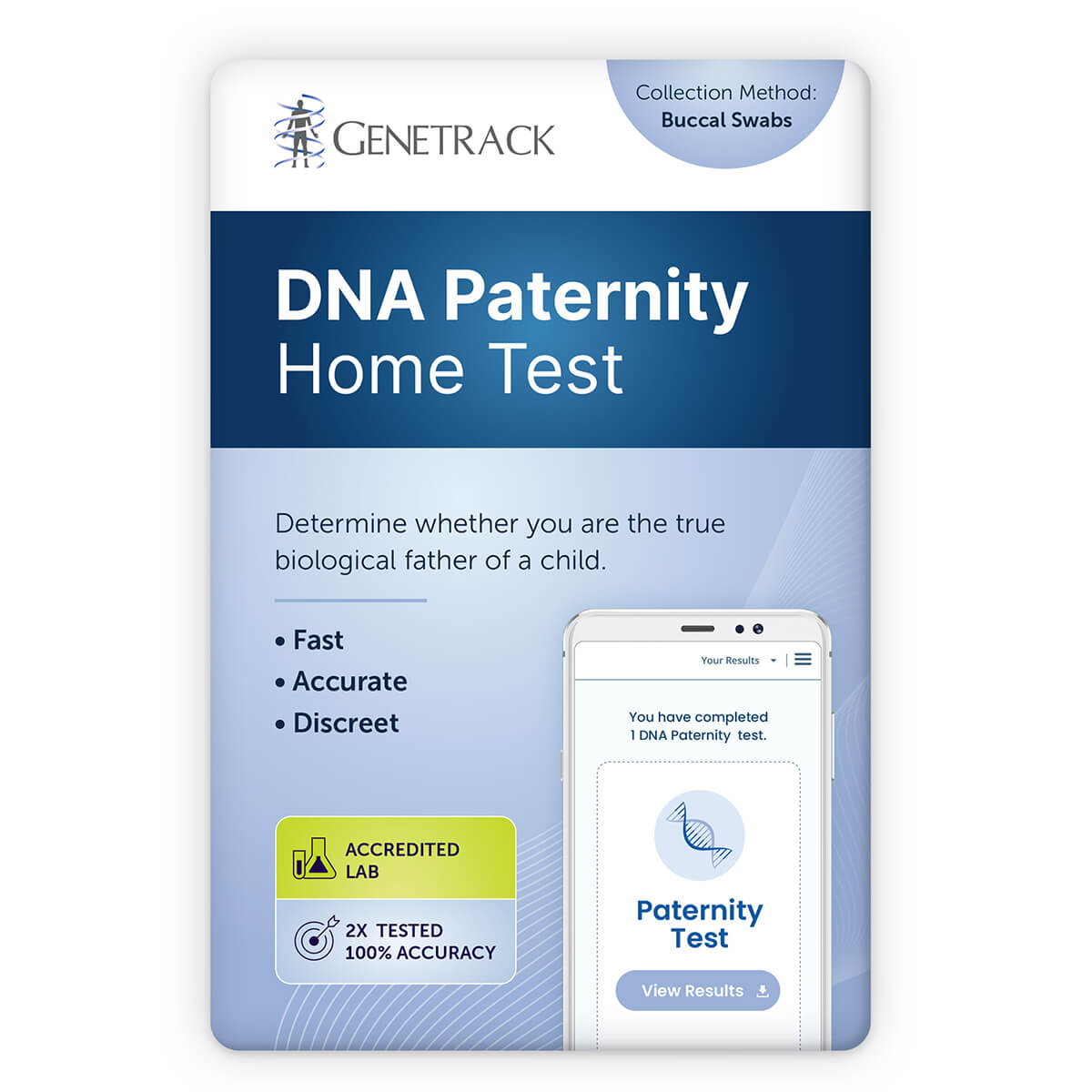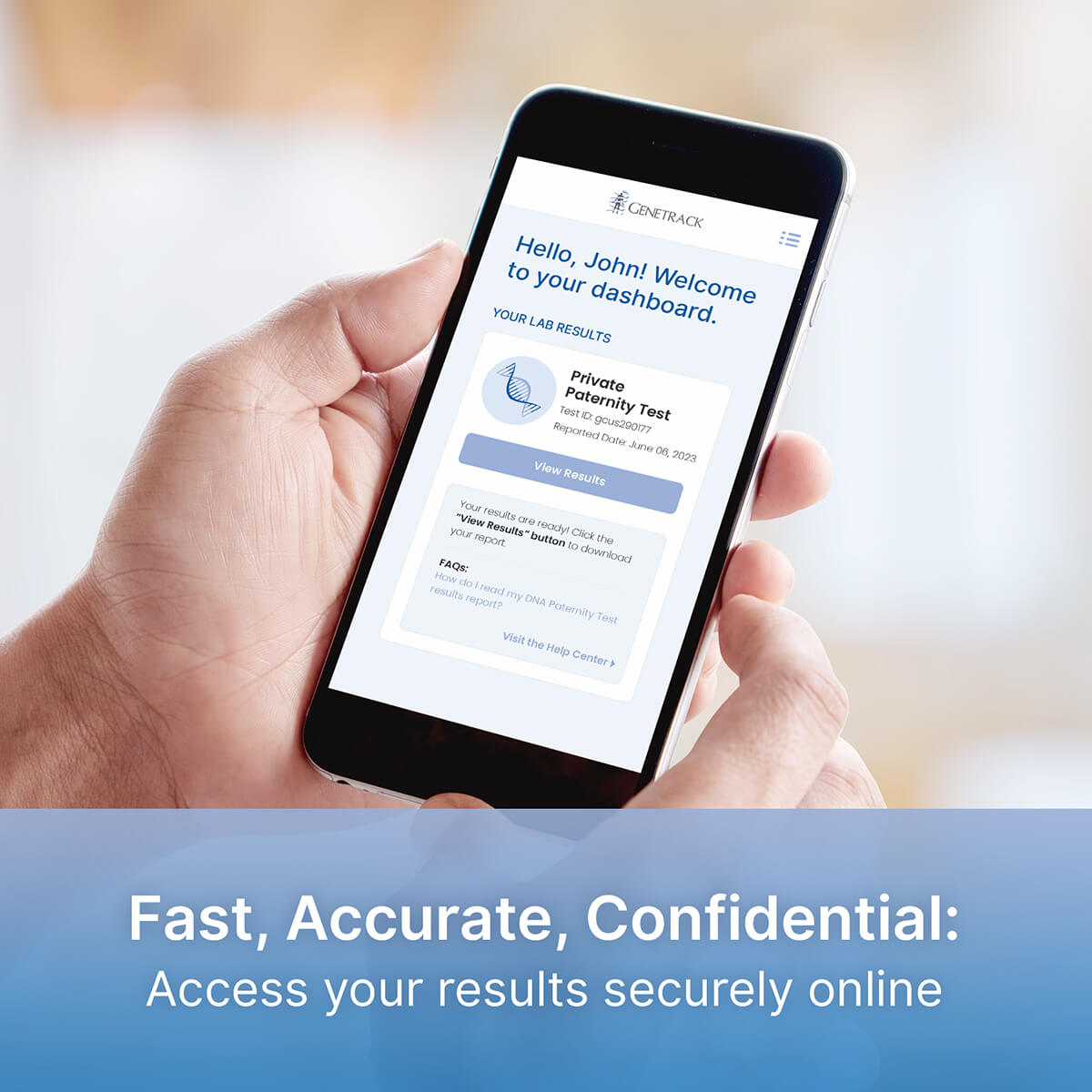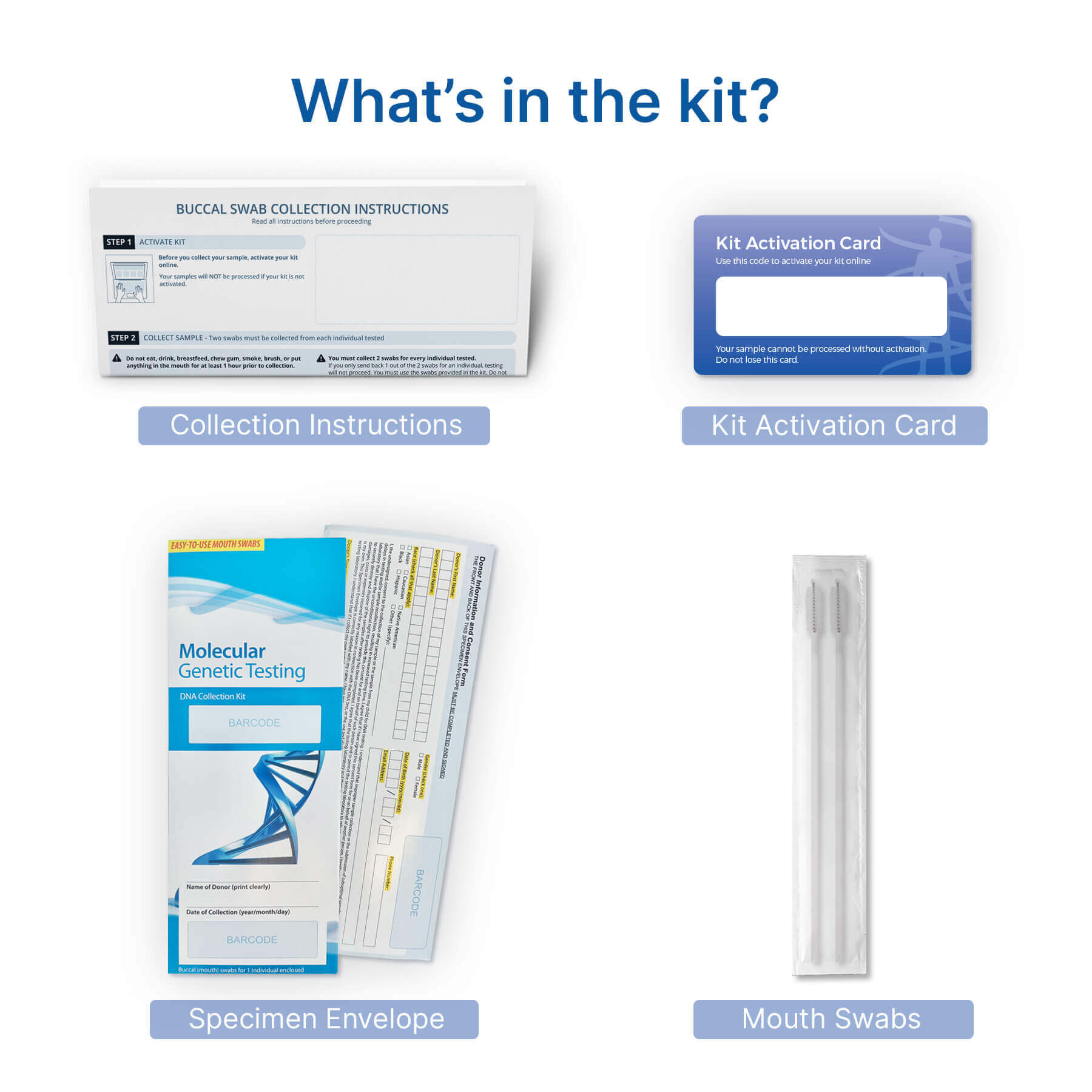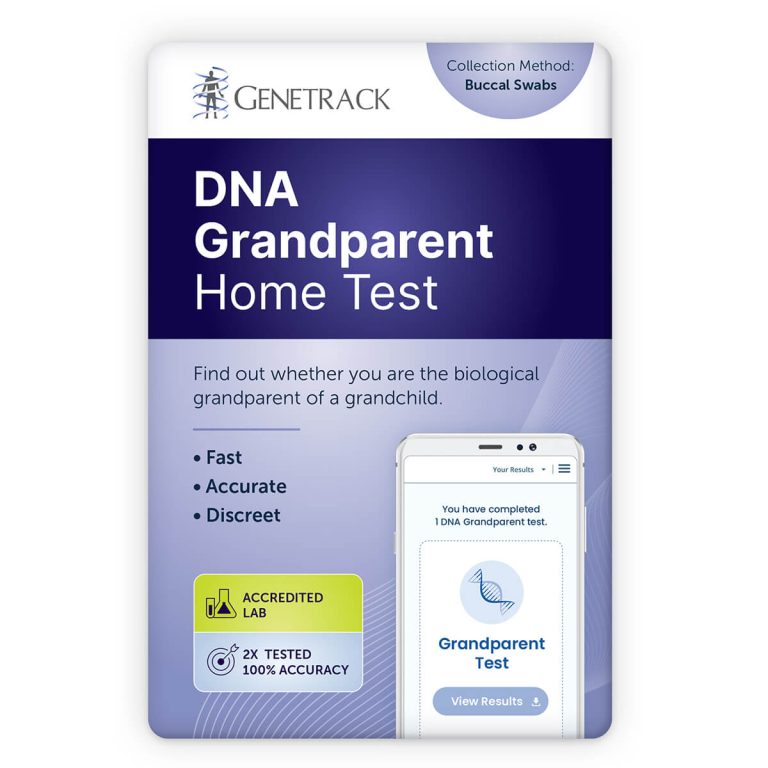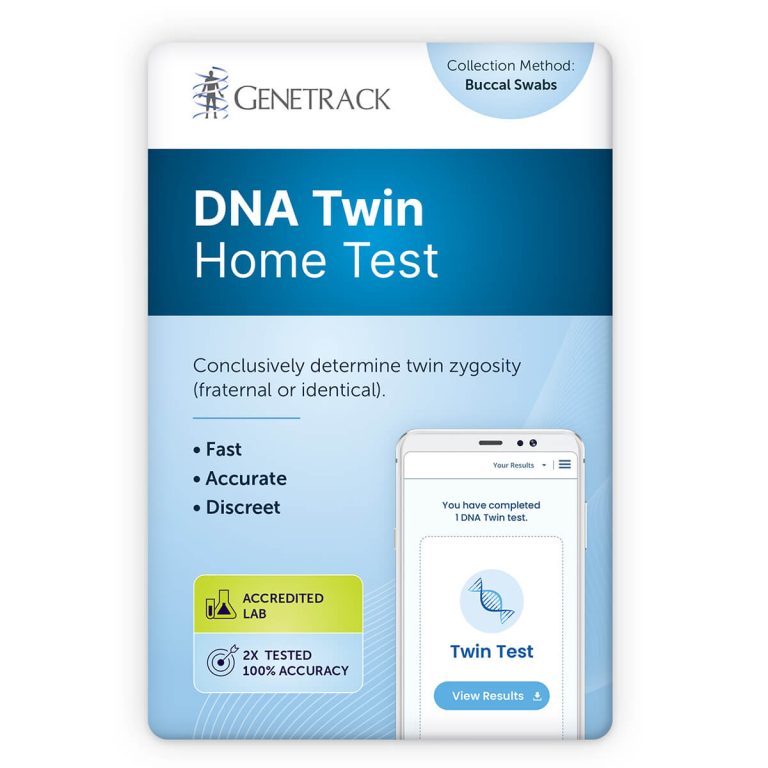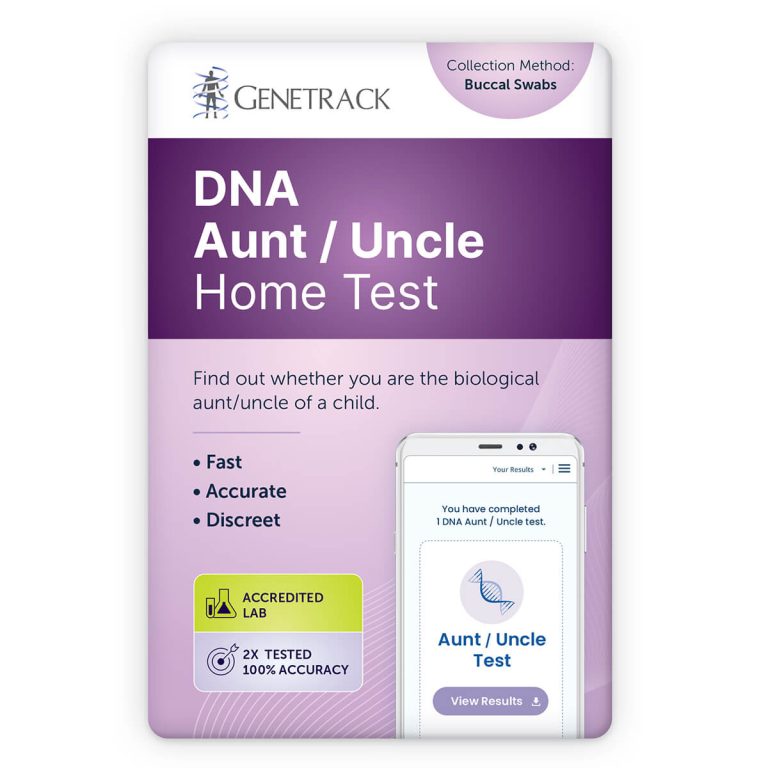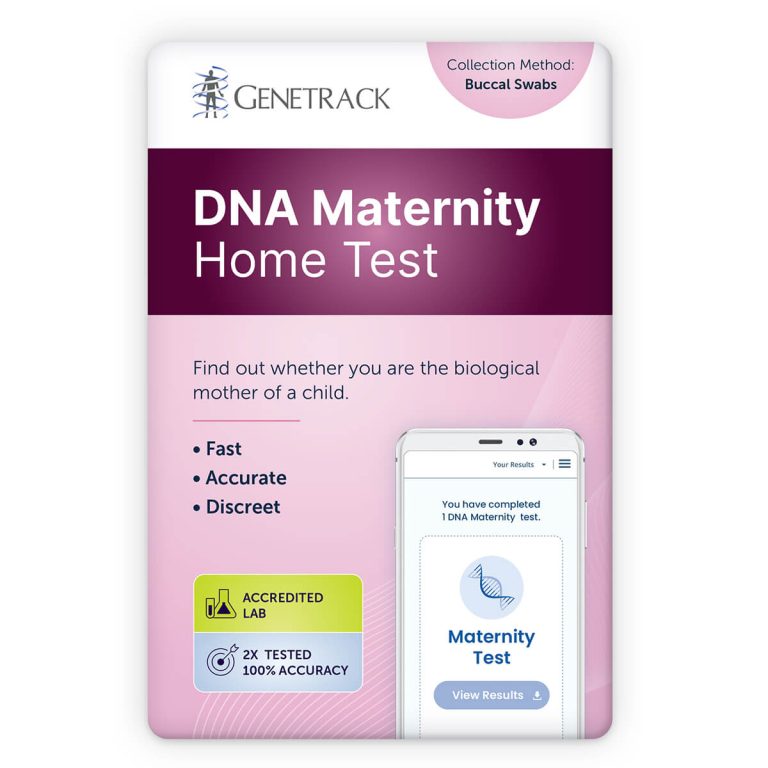Home DNA Paternity Test
Are you the biological father? Conclusively determine the biological relationship between an alleged father and a child from the comfort of your own home. The test can be performed on individuals of any age, from infants to adults, and provides a comprehensive genetic report with every test.
- Results in 1-2 business days after we receive your samples
- Each DNA test is conducted twice for 100% accuracy
- ISO/IEC 17025, AABB, & CLIA accredited laboratory
£98.00
Fast, Accurate and Discreet DNA Testing
Description
If you need to determine a child’s biological parentage, our home DNA paternity test offers definitive answers. This test is easy – just follow the included instructions and collect DNA samples from the child and alleged father using gentle cheek swabs, all from the comfort of your own home.
Our state-of-the-art laboratory guarantees exceptional results, delivering a probability of paternity over 99.999% if the alleged father is the biological father, and 0% probability if he’s not. To ensure the highest level of accuracy, all tests are automatically run twice, eliminating any chance of errors.
With every test, you’ll receive a detailed genetic report that provides a comprehensive analysis of the DNA samples. This report will help you understand the results and make informed decisions about your family’s future.
Benefits
Convenience
Fast Results
Certified Laboratory
Quality & Expertise
Confidential
Technical Information
Every person has a unique DNA profile, much like a genetic fingerprint. This profile is made up of specific DNA sequences called Short Tandem Repeats (STRs). Children inherit half of their STRs from their biological mother and the other half from their biological father, making these sequences a reliable basis for paternity testing.
The process starts with a simple cheek swab, which is a painless way to collect cells containing DNA from both the child and the alleged father. At our laboratory, the DNA is isolated and the STR regions are carefully multiplied using a process called Polymerase Chain Reaction (PCR) for detailed analysis.
Our scientists meticulously compare the child’s and alleged father’s STR patterns. Through this rigorous process, we can conclusively determine if a biological relationship exists. This method provides a definitive answer to paternity questions, all from the comfort and privacy of your home.
How Home DNA Testing Works

Order Test Kit
From paternity tests to grandparent tests, we offer a wide range of DNA tests to fit your needs.

Collect & Ship
Easily swab the participants with our painless mouth swabs, then send the samples to our laboratory for analysis.

Receive Results
Access your confidential results online within 1-2 business days after our laboratory receives your samples.
Secure & Confidential Online Results
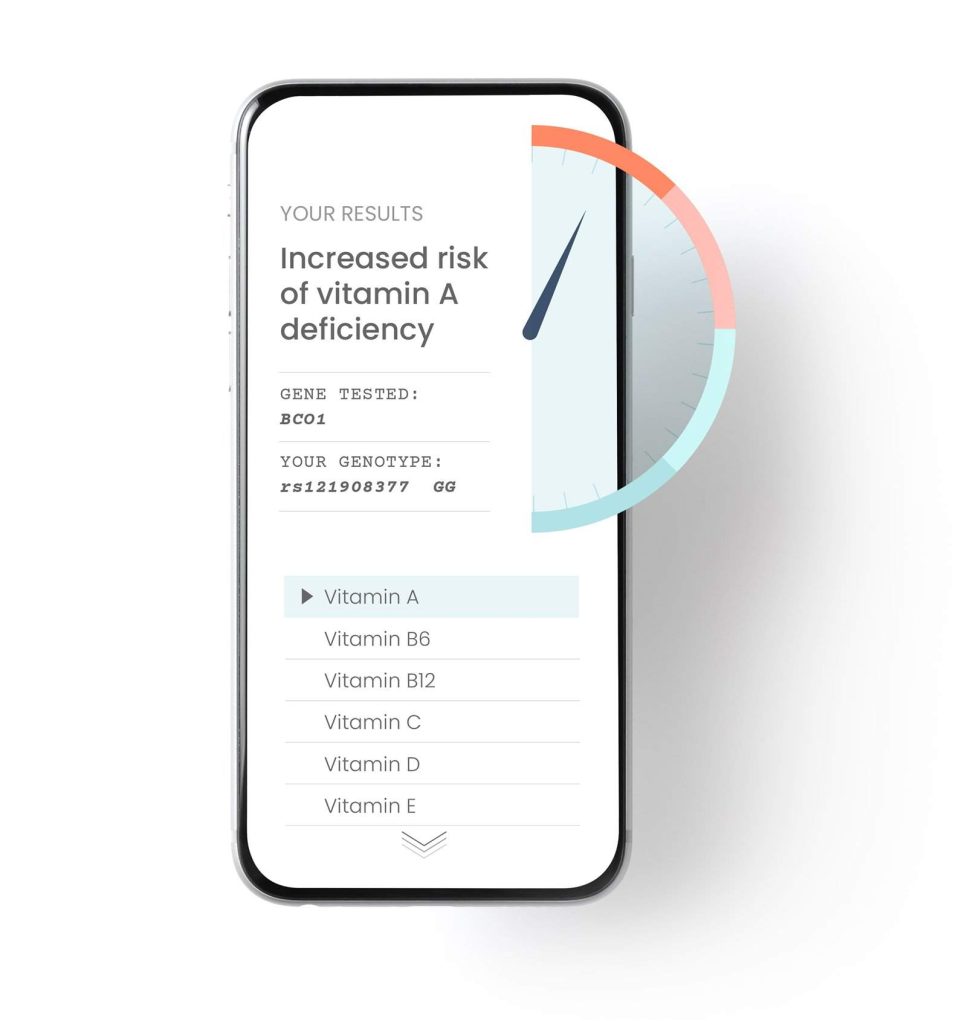
Need DNA evidence for court proceedings?
Frequently Asked Questions
How does the Home DNA Paternity Test work?
Once you place your order for Home DNA Paternity Test, we'll promptly send you a DNA test kit. The kit comes complete with easy-to-follow instructions to guide you through collecting a mouth swab sample from each person participating in the test. Simply rub the swabs gently inside the mouth for 15 seconds, then send the collected samples to our laboratory for analysis.
We'll start testing your DNA samples immediately after they arrive at the laboratory, and your Home DNA Paternity Test results will be ready within just 1 to 2 business days. We'll notify you when your samples arrive at the lab, and again after your test is completed. You can download or view your results directly from your secure online account, available online 24/7.
How long does it take to get the results once you've received the samples?
Once we receive your samples, testing begins immediately, and results are usually ready within 1 to 2 business days. You can access your results securely online through your secure online account.
How will I receive my Home DNA Paternity Test results?
You can view your Home DNA Paternity Test results discreetly from your secure online account once the test is completed. You also have the option to download and print unlimited copies of your final test report.
Why is it important to choose an accredited laboratory?
Selecting an accredited DNA testing laboratory is essential for several reasons. Firstly, accreditation serves as a mark of legitimacy and trustworthiness. It assures you that the laboratory meets stringent standards and follows established protocols to ensure accurate and reliable testing.
Accreditation also guarantees the highest quality of testing. Accredited laboratories undergo comprehensive evaluations by reputable organizations to assess their proficiency and competence. By choosing an accredited laboratory, you can have confidence in the precision and integrity of your test results.
At Genetrack, we take pride in being one of the few DNA laboratories worldwide to have received all major internationally recognized and prestigious DNA laboratory accreditations. These include ISO/IEC 17025, Standards Council of Canada (SCC), American Association of Blood Banks (AABB), College of American Pathologists (CAP), and Clinical Laboratory Improvement Amendments (CLIA) , a testament to our commitment to upholding the highest standards in DNA testing.
How accurate are the DNA Paternity Test results?
The DNA Paternity Test results are 100% accurate and provide conclusive information. If the alleged father is not the biological father of the child, the DNA Paternity Test report will show a 0% chance of paternity. If the alleged father is the true biological father of the child, the DNA Paternity Test report will show a probability greater than 99.999% that he is the father.
Is the home DNA test as accurate as the legal DNA test?
Yes, the home DNA test is just as accurate as the legal DNA test. Both tests are performed in our accredited laboratory and use the same advanced technology and rigorous testing procedures to analyze the DNA samples. The results from both tests are equally accurate and reliable.
The main difference between the two tests is not the accuracy of the results, but the method of sample collection and the documentation process. For a home DNA test, you collect the samples yourself at home, while for a legal DNA test, the sample collection must be witnessed by a neutral third party, such as a medical professional or a legal representative, to maintain a chain of custody. This chain of custody process is what makes the results of a legal DNA test admissible in court.
If you need the test results for legal purposes, such as child custody cases, child support disputes, inheritance claims, or immigration applications, you would need to order the legal DNA test. If you're simply seeking to confirm a biological relationship for personal knowledge, the home DNA test would be sufficient.
What if the participants don't live in the same city?
If the participants live in different cities, you can split the kit and send the components to each party for sample collection. Each component has a barcode to ensure the samples are tested together when they arrive at the laboratory. Even if the samples are collected separately, they will still be tested together once they arrive at the laboratory.
What if the father is not available for DNA Paternity testing?
If the father is not available for testing, there are other options. You can consider testing his parents using the DNA Grandparentage test. Alternatively, if the alleged father’s sibling is available for testing, you can consider the DNA Aunt or Uncle test.
Can a baby take the Home DNA Paternity Test?
Yes, there is no age limit for DNA testing so the test can be performed on infants as well as adults. The DNA sample is collected using a simple and painless cheek swab.
Does the Home DNA Paternity Test kit expire?
Does the mother need to be tested for a DNA Paternity test?
In a paternity test, it is not required to test the mother in order to obtain a conclusive result. The test can be absolutely conclusive even with just the alleged father and child’s samples. However, including the mother’s DNA can help strengthen the results, but it is entirely optional.
